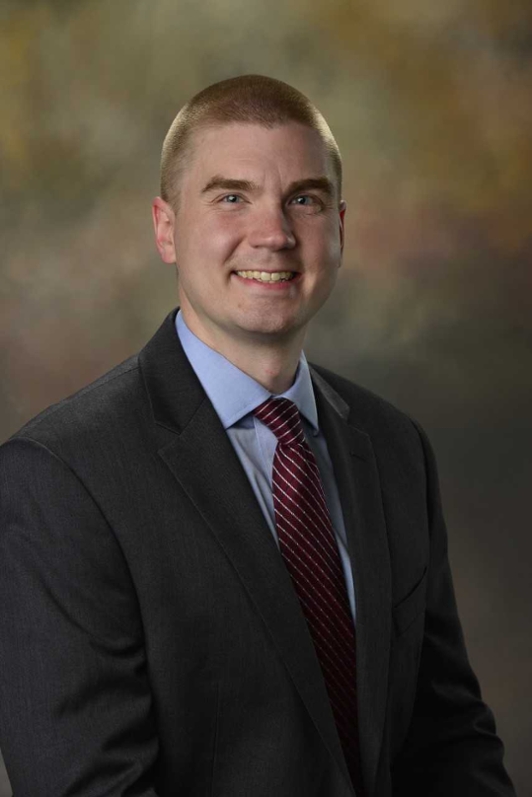DOD invests $9.9M in launch of Systems Engineering Technology program
Published: Sep 17, 2020 2:23 PM
By Cassie Montgomery
The need to develop a new generation of systems engineering technicians properly equipped with the tools to create, operate and exploit the utility of digital engineering as it relates to industrial skill areas was the driving factor in the development of the Systems Engineering Technology (SET) program. The program is a partnership between Auburn University, Calhoun Community College, Victory Solutions and the newly-established nonprofit Institute for Digital Engineering Advancement (IDEA). The initial year of the program kicks off with a $500,000 award and is the pilot year of a five-year grant from the Department of Defense totaling $9.9 million.
“Systems are much more complex today and there is a great demand for systems engineers from organizations such as the Department of Defense, NASA and the Department of Energy,” said Gregory Harris, associate professor of industrial and systems engineering. “The SET program will address this demand and establish a workforce pipeline to enable trained systems engineers to make an impact.”
Harris and Greg Purdy, assistant professor of industrial and systems engineering, are spearheading the SET program development from Auburn, collaborating with industry and Alabama community college partners to build a curriculum that will educate a workforce equipped with digital engineering skills necessary to enable future U.S. technology development. The coalition determined the best way to jumpstart such a shift in the training of systems engineers is to offer a two-year community college degree in systems engineering technology that would ultimately be applicable to a higher-level degree. This approach is designed to appeal to graduating high school students and career transitioning professionals, including returning veterans.
“It’s imperative, on both economic and national security grounds, that we identify and achieve efficiency gains in our engineering and product development processes. Our colleagues in this project have identified a way to do just that,” said James Payne, dean of the Business and Computer Information Systems (CIS) Division at Calhoun Community College. “People looking to start a technical career in the Huntsville area will find this program to be a promising addition to the opportunities Calhoun already offers. We look forward to building this program from the ground up and establishing it as a nationwide standard.”
Students in the program will have direct access to prominent companies in the aerospace and manufacturing industry in the form of guest lectures and other involvement, including SET partner Victory Solutions. The Huntsville-based firm has close ties to the defense, aerospace and technical engineering industries and a vested interest in helping to develop systems engineers that are ready to contribute to the workforce through internships and upon graduation.
“Through Victory’s Model Based System Engineering (MBSE) support to the defense and aerospace industries, we identified a critical U.S. industrial base skill gap: a quickly available workforce trained to support engineers in digital modeling,” said David Alan Smith, senior vice president of advanced programs at Victory Solutions.
“Key to SET implementation goals are the internship opportunities offered for program participants. Through existing work experience and ongoing discussions with potential employers, we believe there is a significant demand for both this early support/familiarization as well as enhanced preparation for further employment post-graduation,” he added.
Ultimately, the vision of the researchers and industry partners involved in bringing the SET program to fruition is to provide a national collaborative center in the form of the nonprofit IDEA, where best practices and solutions in digital engineering and manufacturing will be identified, shared and recommended. Chris Crumbly, executive director of IDEA, explains that the nonprofit will promote, teach and innovate model-based engineering concepts, including industry 4.0, additive manufacturing, computer-aided design (CAD) and computer-aided manufacturing (CAM) automation, computer numerical control machining and product lifecycle management systems.
“IDEA seeks to share information without the need for complicated intellectual property agreements and without the burden of state and federal contracting constraints and processes. Our model is designed to share information leading to consistency of instruction but malleable to the needs of the community being served,” Crumbly said. “IDEA will introduce the SET concept to community college systems across the nation and remain as a subject matter expert to support education and connect organizations with experts, graduates and interns.”
Harris expects high demand for the program, especially from students in north Alabama.
“Auburn Engineering students are already highly desired by the Department of Defense, the U.S. Army and NASA. Our industry partners are already talking to us about how they can get involved. I’m excited for the opportunities this will open up for our students,” he said.
Media Contact: , cmontgomery@auburn.edu, 334.844.3668
Greg Purdy and Greg Harris



